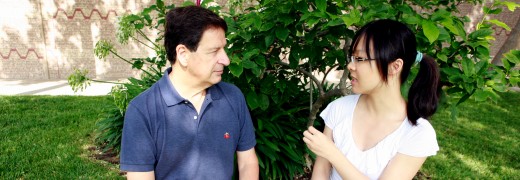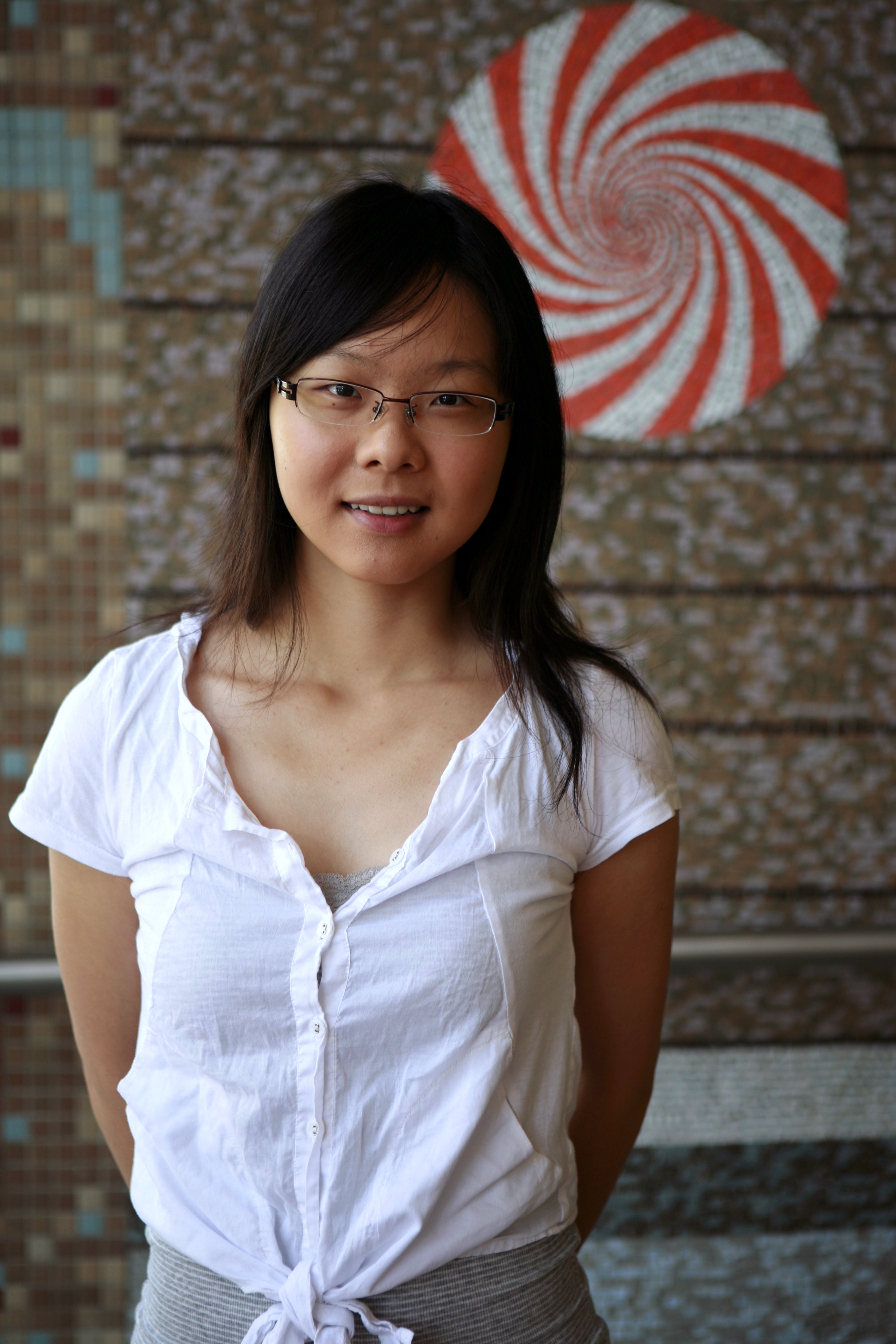Intern Profile – Haiyi Zhu

Senior Fellow Bernardo Huberman and intern Haiyi Zhu.
This is a series of profiles featuring interviews with some of this year's crop of summer interns at HP Labs.
We continue the series with an interview with Haiyi Zhu who was recruited by the
Social Computing Research Group.

Summer intern
Haiyi Zhu
Haiyi Zhu is interning at HP Labs for the first time this summer. A second-year PhD student at Carnegie Mellon University’s Human Computing Interaction Institute, Zhu is working with Bernardo Huberman, director of HP’s Social Computing Research Group. “I’m interested in how people interact in online communities, and how they are influenced by each other,” she says. Zhu grew up in Suzhou, China and majored in computer science at Beijing’s Tsinghua University. On arriving in Silicon Valley, she was happy to find a number of undergraduate friends already there. When Zhu’s not hanging out with them, playing tennis or ping pong, she also likes to read and watch movies.
HP: How will your work at HP Labs this summer connect to your graduate work?
In general, I’m interested in how to influence and motivate people, drawing on theories from social psychology to create hypotheses and then test them. That’s what I’m doing this summer, and I’m hoping the work will feed into my PhD thesis.
HP: Can you tell us about your summer project?
I’m going to look at how displaying others’ choices can affect people’s own choices in recommendation systems. Yesterday, for example, I had a choice between two restaurants in Palo Alto that were next to each other. One, a Mexican restaurant, was full and the other, a Chinese restaurant, was empty. Even though I knew that I usually preferred Chinese food, the social information indicated that the Mexican place was better, so I ate there. Similarly I have a hypothesis that when you are uncertain about something you are more likely to be influenced by others’ choices and we’re conducting an experiment to test this.
HP: Can you describe the experiment?
We will conduct experiments on Rankr, which allows you to choose between two pictures of say, pieces of furniture. At first we’ll ask you to choose without other information. Then, after about 15 or 16 such choices, we’ll show you the same first two items again but also tell you how many other people have liked each of the pictures. We’re looking to see if that information will reverse your original choice.
HP: What has been the best thing so far about interning at HP Labs?
One thing is that the Social Computing Research group is very interdisciplinary. We have people with backgrounds in applied physics, computer science, economics, psychology, and operations research, so they all have very different ways to think about a problem. It’s also very inter-cultural – and those different perspectives help our research.
HP: Do you have a sense of how you’d like your research career to develop?
Right now I’m thinking that I’d like to go into academia, but I’m keeping my options open!
HP: What would you say is the value of an internship at a place like HP Labs?
Early in your academic career I think it’s good to expand your view and work with others, to know what they are thinking about and working on. An internship like this is a great way to get that kind of experience.